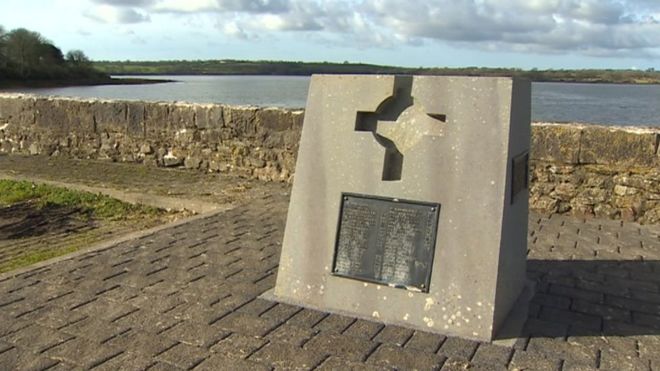Anniversary of Welsh mining disaster also reminder of exploitation, cover-up and illegal child labour
On this day, 14th February 1844, the Garden Pit at Landshipping, Pembrokeshire (Welsh: Sir Benfro) was flooded by the River Cleddau (Afon Cleddau) and 40 colliers, men and boys were drowned. The community gathered today to rededicate a memorial exactly 175 years after Pembrokeshire's worst mining disaster. The waters of the Eastern Cleddau river broke through into the coal mine, a section of which ran below the estuary. On the day there had been warnings of the dangers. At about lunchtime the miners left the workings because of the quantity of salt water seeping into the mine. However, it has been reported that the manager of the mine was told by mine owner, Hugh Owen, to keep the miners working.
That afternoon the mine flooded. Four men and 14 boys were rescued, but 40 were left trapped and they all drowned. Their bodies have never been recovered and still lie in the flooded pit. The inquest into the tragedy held afterwards has since been described as a cover-up. The mine's owner was an MP. The children who died were not named at the hearing. It needs to be remembered that just two years earlier, the 1842 Mines Act had been passed. This banned women and girls and boys under 10 from working underground. Some of those children who died in the mine that day were under ten years, with one aged just four years old. They were used because they were small enough to work and crawl in very small areas. Conditions were atrocious for everyone that worked in the mine.
A memorial service was held today at Burnetts Hill chapel in nearby Martletwy, once used by the miners. Local people also walked by torchlight to the memorial for the rededication. As for the children who were never named because they were working in the mine illegally. Researchers have now found out who they were and their names added to a new memorial plaque.






